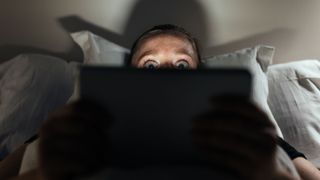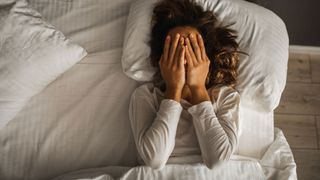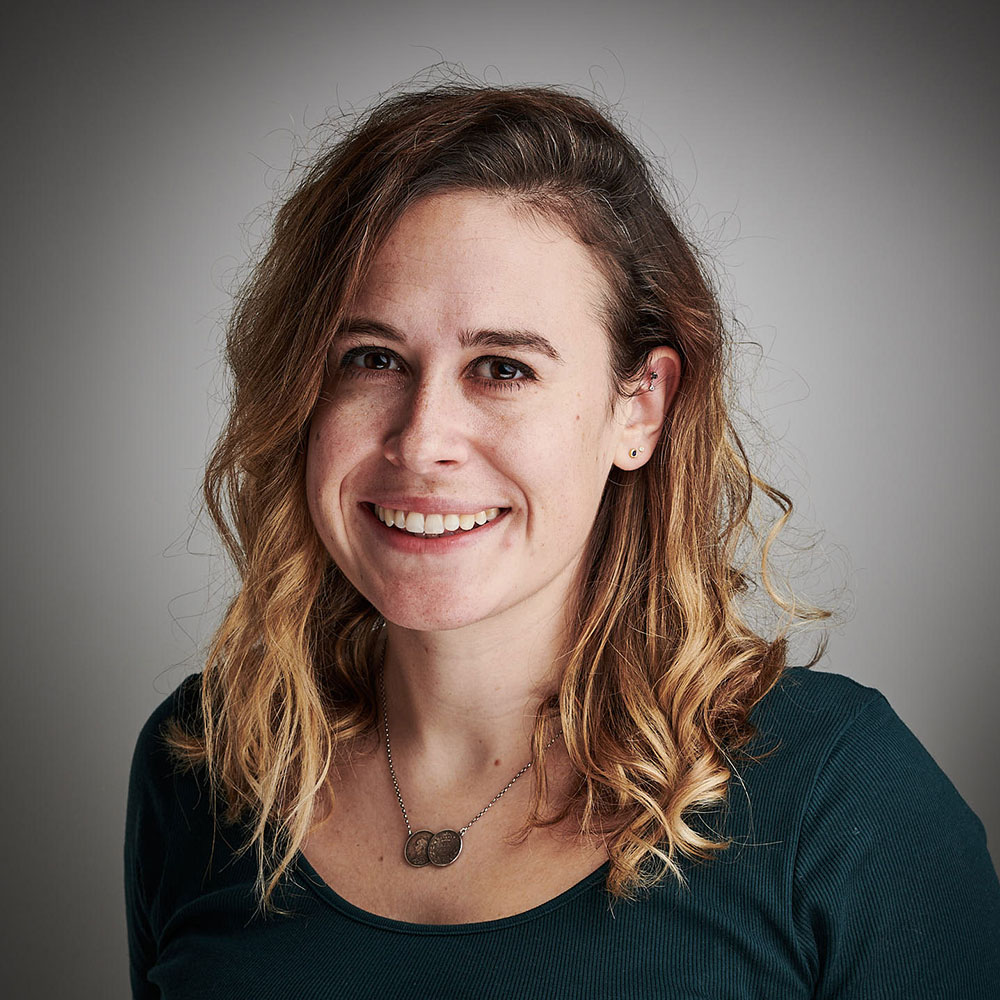Nightmare fuel? Here's how (and why) scary movies affect your sleep
Sleep expert explains

Halloween is a time for frightening yourself silly with horror movies. If you don't have a natural disposition towards scary stuff, if just a glance at our best horror movies on Netflix list fills you with dread, that can quickly translate into nightmares or difficulty sleeping. We spoke to a sleep expert to find out exactly why that is, and how to avoid a night staring warily at the shadows in the corner of your room.
According to qualified Sleep Scientist Theresa Schnorbach, there's no definitive reason why we have nightmares, although there are plenty of theories. "The purpose of dreaming is highly debated. Some researchers believe that dreams are a way for us to process our memories and help us understand our emotions," she explains. Based on that understanding, nightmares might be a way for us to make sense of events and experiences that have frightened us.
"Most experts believe nightmares are caused by everyday stress and trauma," she continues. "Given the intense stimulus one gets from horror movies, especially when watched at night prior to bedtime, the brain could perceive this as a form of virtual reality, evoking typical stressful situations of real life."
How can horror movies affect sleep?
Theresa explains that most dreaming takes place during REM (rapid eye movement) sleep, which typically kicks in about 90 minutes into the sleep cycle and repeats every 90 minutes. "Intense, emotion-evoking dreams tend to be more memorable. Most of the time, when you wake up from a nightmare you can clearly recall the details of the dream, and in turn, may have difficulty falling back asleep."

How can you avoid a sleepless night after a horror movie?
Let's say you're not a natural horror aficionado, but you still want to get involved with the Halloween film fright-fest. Is there a way to hack the system and avoid the nightmares? According to Theresa, there's no definitive way to guarantee a nightmare-free night, but there are things you can do to help.
"Working on your sleep hygiene and habits can help you build a better routine that is beneficial for getting a good night’s sleep, which may make any nightmares you have less bothersome," says Theresa, who works with Emma (the bed brand behind the Emma Original, one of the best mattresses around, based on our testing). Here are her top tips for a good night's sleep after a scary movie:
#1. Buddy up
"Try and find somebody to watch the film with, even better somebody who has seen the film before. Having someone else who knows what's coming can be very comforting when watching something scary."
Sign up to get the BEST of Tom’s Guide direct to your inbox.
Upgrade your life with a daily dose of the biggest tech news, lifestyle hacks and our curated analysis. Be the first to know about cutting-edge gadgets and the hottest deals.
#2. Avoid the bedroom
"I would advise against watching horror films in the bedroom, as watching horror is associated with experiencing a traumatic event. Associating one's bedroom with a traumatic event can be very problematic and dangerous for your sleep."
#3. Put down the coffee
"As much as we all like that afternoon cup of coffee, it isn’t always a good idea. Caffeine is a stimulant and can keep your mind awake when it should be slowing down."
#4. Distract yourself
"Talk to other people about other topics completely unrelated to the horror movie."
#5. Leave a light on
"Sleep gadgets such as sunrise alarms can help those who feel that light makes them feel safer. These alarms allow you to set times when the lights will switch on and off, thus avoiding night disturbances."
#6. Wind down
"As part of your evening routine, you should do activities that help feel calm and relaxed. Try some breathing exercises or having a bath to help you unwind before going to bed, and that may help improve your sleep."
What if that doesn't help?
If you've tried all of the above and still struggle to sleep after a horror movie, you might need to concede defeat. "If you are a person who isn’t sensitive to horror movies, then it’s likely you won’t have any problems with your sleep or nightmares. On the other hand, if you are more sensitive to the horror genre, then my advice is to try and avoid them altogether," says Theresa.
If the nightmares are affecting your day-to-day life, it's not worth it – recognize that perhaps horror just isn't a genre for you. And if you're struggling with nightmares on a regular basis, you should see a doctor to figure out if there's another underlying cause, advises Theresa.
You would perhaps be best off avoiding scary movies if you're feeling particularly unsettled at the moment, too. "Recent research from Emma found almost half (44%) of Brits are feeling more anxious," adds Theresa. "When you might already be feeling worried or anxious, a scary movie can play on these feelings so I would advise against watching if this is the case."

Theresa Schnorbach is a psychologist and sleep scientist, specialized in Clinical Psychology and Cognitive Neuropsychology. She has completed post-graduate training in Cognitive Behavioural Therapy for Insomnia (CBT-I) with the German Sleep Society (DGSM), endorsed by the European Research Society. She works as a sleep specialist for bed brand Emma.

Ruth Hamilton is a Sleep Editor and and Certified Sleep Science Coach who is qualified to offer advice on what mattress will suit you best, plus tips on how to improve your sleep habits. She was acting Sleep Editor on Tom's Guide for a year, and has now moved across to our sister site TechRadar. Ruth has tested more mattresses than her small flat can handle and will talk at length about them to anyone who shows even a passing interest, and has had to implement a one-in-one-out pillow policy for fear of getting smothered by them in the night. As well as following all the industry trends and advancements in the mattress and bedding world, she regularly speaks to other sleep experts to delve into the science behind a great night's sleep, and offer you advice to help you get there.
